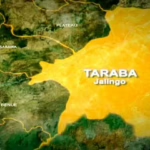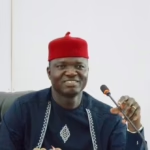The ruling party secures a commanding victory in a parliamentary election widely interpreted as a decisive choice between aligning with Europe or Russia.
Published On 29 Sep 2025
The pro-European Party of Action and Solidarity (PAS) has emerged with a strong mandate in Moldova’s recent parliamentary elections, an event overshadowed by allegations of Russian meddling and framed as a critical decision between European integration and closer ties with Moscow.
Preliminary results released Monday, with nearly all precincts reporting, indicate PAS secured 50.2% of the vote, while the pro-Russian Patriotic Electoral Bloc garnered 24.2%, according to the Associated Press. The Russia-aligned Alternativa Bloc finished third, trailed by the populist Our Party.
This election was widely regarded as a referendum on Moldova’s geopolitical direction, with the incumbent pro-European government facing off against multiple Russia-friendly factions.
In the lead-up to the vote, Prime Minister Dorin Recean cautioned about extensive Russian interference, accusing Moscow of investing “hundreds of millions” of euros in a so-called “hybrid war” aimed at seizing control-a struggle he described as “the ultimate battle for our nation’s destiny.”
Russia has denied these accusations, rejecting claims of orchestrating disinformation campaigns, vote-buying, or fomenting unrest within Moldova.
Strategically positioned between Ukraine and Romania, an EU member, Moldova has steadily gravitated westward, achieving EU candidate status in 2022 shortly after Russia’s invasion of Ukraine.
Cristian Cantir, an associate professor of international relations at Oakland University, told AP that PAS’s triumph represents “a definitive victory for pro-European forces in Moldova, enabling them to maintain momentum toward EU accession over the coming years.”
He added, “Securing a parliamentary majority spares PAS from forming a fragile coalition that could have hindered reform efforts. Nonetheless, Moldova will continue to navigate a challenging geopolitical landscape marked by Russia’s persistent attempts to reassert influence.”
Election day was marred by a series of disruptions, including bomb threats at several overseas polling stations, cyberattacks targeting electoral and government systems, voters photographing ballots, and illegal ballot transportation. Authorities detained three individuals suspected of plotting post-election disturbances.
President Maia Sandu described the election as “the most consequential in our country’s history,” emphasizing that its results will determine whether Moldova solidifies its democracy and advances toward EU membership or falls back into a precarious zone under Russian sway. She shared this message on X, underscoring the stakes involved.
Meanwhile, Prime Minister Recean urged Moldovans both domestically and abroad to respond proactively: “While we cannot alter Russia’s actions, we can control our response as a people. Let us transform concern into mobilization and deliberate effort to thwart their schemes.”

















